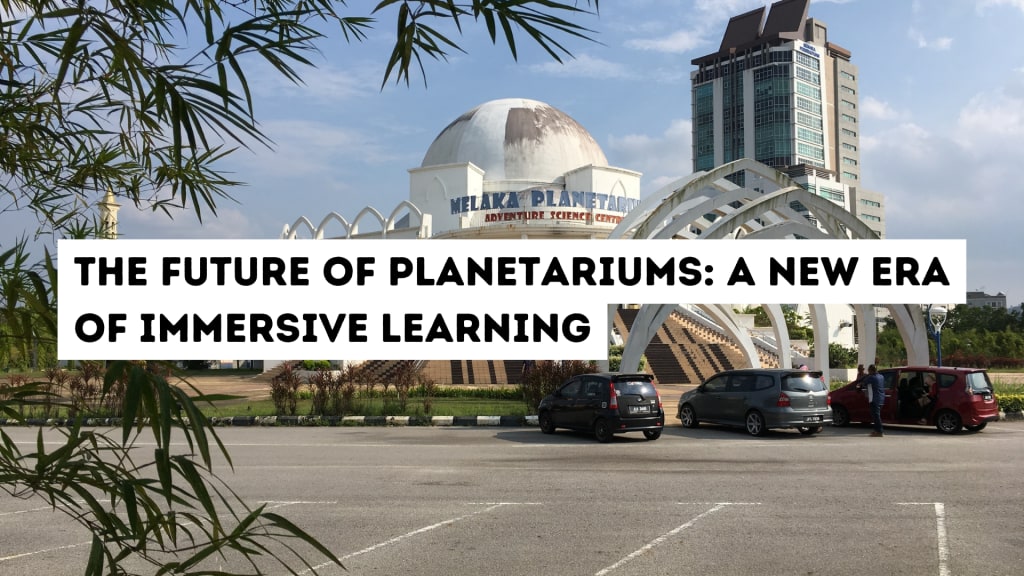The Future of Planetariums: A New Era of Immersive Learning
How planetariums are adapting to the changing needs of the 21st century to continue to educate the public about astronomy and space exploration.

Planetariums have been around for over a century, and they have played an important role in educating the public about astronomy and space exploration. However, in recent years, there has been a decline in planetarium popularity. Some people believe that planetariums are no longer necessary, as we can now learn about space from a variety of other sources, such as the internet and television. Others believe that planetariums are still a valuable educational tool, and that they offer a unique and immersive experience that cannot be replicated elsewhere.
So, what is the future of planetariums? Will they continue to decline in popularity, or will they find a way to adapt and thrive in the 21st century?
There are a number of factors that have contributed to the decline in planetarium popularity. One factor is the rise of the internet. In the past, if you wanted to learn about astronomy, you had to go to a planetarium. However, today, you can find information about astronomy on the internet, and you can watch educational videos about space exploration on YouTube.
Another factor that has contributed to the decline in planetarium popularity is the cost of admission. Planetarium tickets can be expensive, and many families cannot afford to take their children to a planetarium on a regular basis.
Despite these challenges, there are still a number of reasons why planetariums are a valuable educational tool. First, planetariums offer a unique and immersive experience that cannot be replicated elsewhere. When you are in a planetarium, you are surrounded by a projection of the night sky, and you feel as if you are actually traveling through space. This can be a very powerful and memorable experience for students of all ages.
Second, planetariums can provide students with a hands-on learning experience. In addition to watching educational presentations, students can also participate in interactive activities that help them learn about astronomy and space exploration. This type of hands-on learning is essential for engaging students and helping them understand complex concepts.
Finally, planetariums can provide students with a sense of wonder and excitement about space. When students see the beauty and vastness of the universe, it can inspire them to learn more about science and exploration. This is especially important in today's world, where many students are losing interest in science.
In conclusion, planetariums are still a valuable educational tool, and they offer a unique and immersive experience that cannot be replicated elsewhere. While there are a number of challenges facing planetariums, there are also a number of reasons to be optimistic about their future. If planetariums can adapt to the changing needs of the 21st century, they will continue to play an important role in educating the public about astronomy and space exploration.
Here are some of the ways that planetariums are adapting to the changing needs of the 21st century:
Using new technologies: Planetariums are using new technologies to create more immersive and engaging experiences for their visitors. For example, some planetariums are using virtual reality to allow visitors to explore the solar system in a realistic way.
Partnering with schools: Planetariums are partnering with schools to provide educational programming that is relevant to the curriculum. This helps to ensure that students are getting the most out of their planetarium experience.
Reaching out to new audiences: Planetariums are reaching out to new audiences, such as families, tourists, and adults. This helps to ensure that planetariums are relevant to the needs of the community.
If planetariums can continue to adapt to the changing needs of the 21st century, they will continue to play an important role in educating the public about astronomy and space exploration.
About the Creator
Plantera Digital Media
welcome to my page here i share
- Stories
- Interesting facts about the world around us
- Thought-provoking theories about the nature of reality
- Useful information that can help people in their lives






Comments
There are no comments for this story
Be the first to respond and start the conversation.